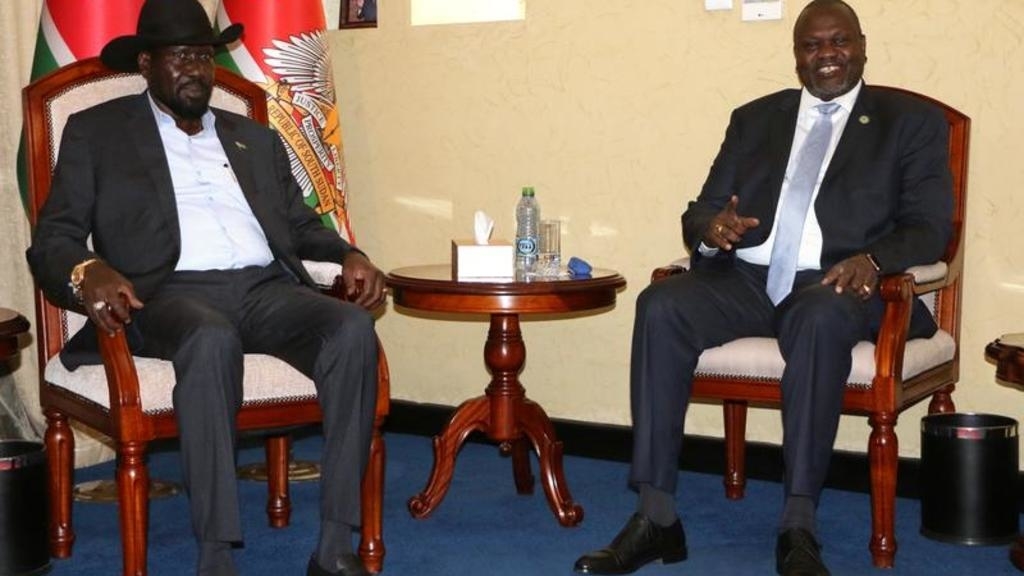Alwaght- South Sudan President Salva Kiir and former ex-vice president and rebel leader Riek Machar have agreed on Thursday to form a long-delayed unity government by Saturday's deadline.
Following talks at the state house in the capital Juba, Machar said that they had agreed to join together for the third time in government.
"We have agreed to form the government in two days on 22nd February. We are still discussing on other things and I am hopeful we will resolve them all," media outlets quoted Machar as saying.
President Kiir said he would appoint Machar as first vice president on Friday and provide all the members of the former opposition with protection.
"As the president, I will be appointing the vice presidents, and I will start by appointing Riek tomorrow (Friday) in the morning and I will dissolve the government today and then form a new government on the 22nd" he said.
Kiir said they were going to discuss the security arrangements for the protection of all opposition forces and members. "These are changes which will bring peace," he said.
“If there are things we have not agreed upon, we have agreed to resolve them. We shall finalize them in coming days.”
The president also urged some 190,000 people living under United Nations protection in tent cities in the capital and across the nation "to come out, because the dawn of peace has come."
Kiir and Riek Machar agreed a peace deal in 2018, pressured by the United Nations and countries in the region. But it has been delayed twice by failure to move forward on crucial issues such as forming a unified army, carving out state borders and creating a protection force to assure Machar's security.
South Sudan became the world’s youngest nation in 2011 when it won independence from neighboring Sudan following decades of scorched-earth conflict.
The African nation descended into war in 2013 when President Kiir accused his former deputy and fellow former rebel leader Machar of plotting a coup.
Kiir is a Dinka, the country’s largest ethnic group, and Machar comes from the Nuer community.
The war, marked by ethnic violence and brutal atrocities, has left about 400,000 dead while some four million have fled their homes. The conflict has also triggered a famine and created Africa’s biggest refugee crisis since the 1994 genocide in Rwanda.
Trainee soldiers for a new unified army share a meal at their quarters built of grass while attending a reconciliation program run by the United Nations Mission in South Sudan (UNMISS) at a makeshift barracks in Mapel on January 31, 2020. (Photo by AFP)
Separately, a United Nations report released on Thursday warned that the current peace in South Sudan is extremely fragile.
The Commission on Human Rights in South Sudan said in its report that high-level corruption is rampant, militias are being armed and civilians deliberately starved.
More than half the 12-million strong population face food shortages, it added.
According to the commission, “the revitalized peace process has led to a fragile peace at the national level in South Sudan, the conflict having shifted to an intensification of ethnic violence at a localized level.”
The report also accused government forces of arming local militias to attack neighboring communities.
“Deliberate starvation is clearly occurring along ethnic and political lines,” it said.



























